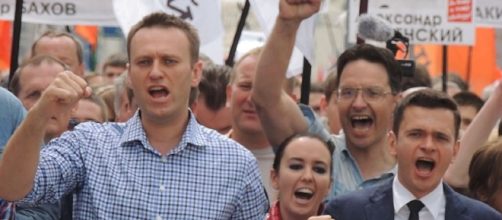Russia's opposition leader was arrested on Monday for organizing anti-corruption Protests across the country. Alexei Navalny was arrested outside his home in Moscow while en route to join the protests in the city center, AP reported. He was later sentenced to 30 days in jail.
Tens of thousands of Russians joined the protests and nearly one thousand were arrested. White House Press Secretary, Sean Spicer, said that the United States condemned Russia for arresting peaceful protesters.
Navalny was previously arrested in March for protesting against the financial corruption of Russian Prime Minister Dmitry Medvedev.
Who protested
Social media drew many young adults to the protests. Teenagers were seen crafting signs in the streets, the AP reported. Financial corruption by the Russian government "is costing the future of our young people," one protester told the AP.
University students took to the streets in support of Navalny and in opposition to the corruption, many say exists even among professors. Protesters younger than 17 years old have only known Russian leadership in Vladimir Putin. Putin has alternated between Prime Minister and President since 2000.
Some protested alongside people in medieval clothing, the AP reported. The organized demonstrations coincided with Russia Day celebrations, which included historical re-enactments from medieval times to World War II.
2018 election
Russian President Vladimir Putin is up for re-election in March 2018. Navalny announced his candidacy to challenge Putin in 2016 and has protested against Russian corruption since 2008, Blasting News reported.
Russian senators believe the U.S. and NATO will try to influence the Russian presidential election, Newsweek reported, as the FBI continues its investigation over Russian interference in the 2016 U.S. presidential election. U.S. and NATO would support the election of a new Russian president.
Elections have not historically been free or fair in Russia. Freedom House reported that Putin used the censored press to his advantage to win the 2012 presidential election. The Progress Party, the opposition party led by Navalny, has faced roadblocks in registering and participating in elections, to deter them from challenging the incumbent United Russia party, Freedom House reported. Navalny's brother was imprisoned for three and a half years in 2015, in an alleged attempt to limit Navalny's political activities.


